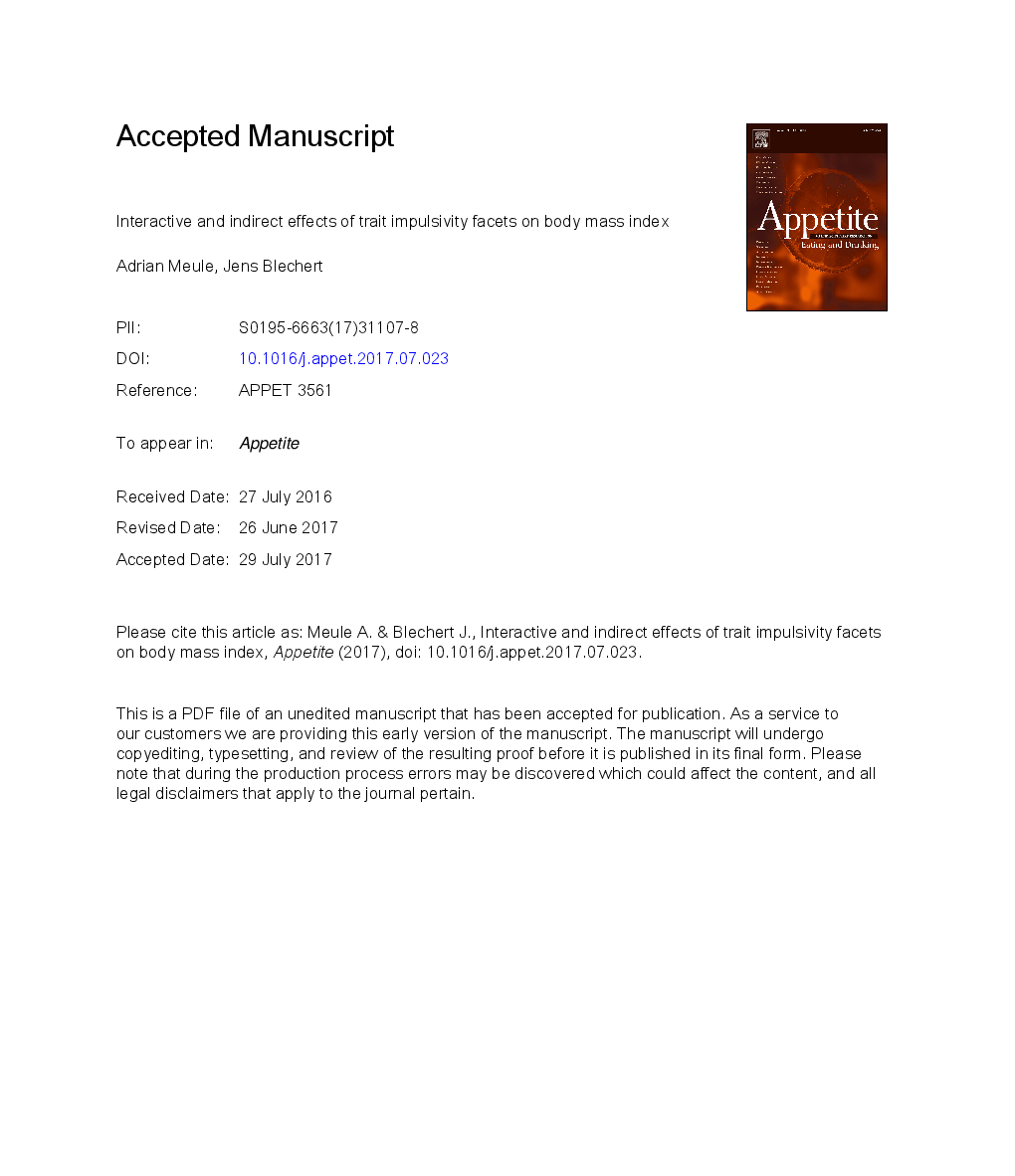ترجمه فارسی عنوان مقاله
اثرات تعاملی و غیرمستقیم ترسیم گرایی صفات بر شاخص توده بدن
عنوان انگلیسی
Interactive and indirect effects of trait impulsivity facets on body mass index
| کد مقاله | سال انتشار | تعداد صفحات مقاله انگلیسی |
|---|---|---|
| 122242 | 2017 | 27 صفحه PDF |
منبع

Publisher : Elsevier - Science Direct (الزویر - ساینس دایرکت)
Journal : Appetite, Volume 118, 1 November 2017, Pages 60-65
ترجمه کلمات کلیدی
تکانشی، مقیاس انعطاف پذیری بارات، موفقیت خودمراقبتی در مقیاس رژیم غذایی درک شده، شاخص توده بدن، واسطه مدیریتی،
کلمات کلیدی انگلیسی
Impulsivity; Barratt Impulsiveness Scale; Perceived Self-Regulatory Success in Dieting Scale; Body mass index; Moderated mediation;

